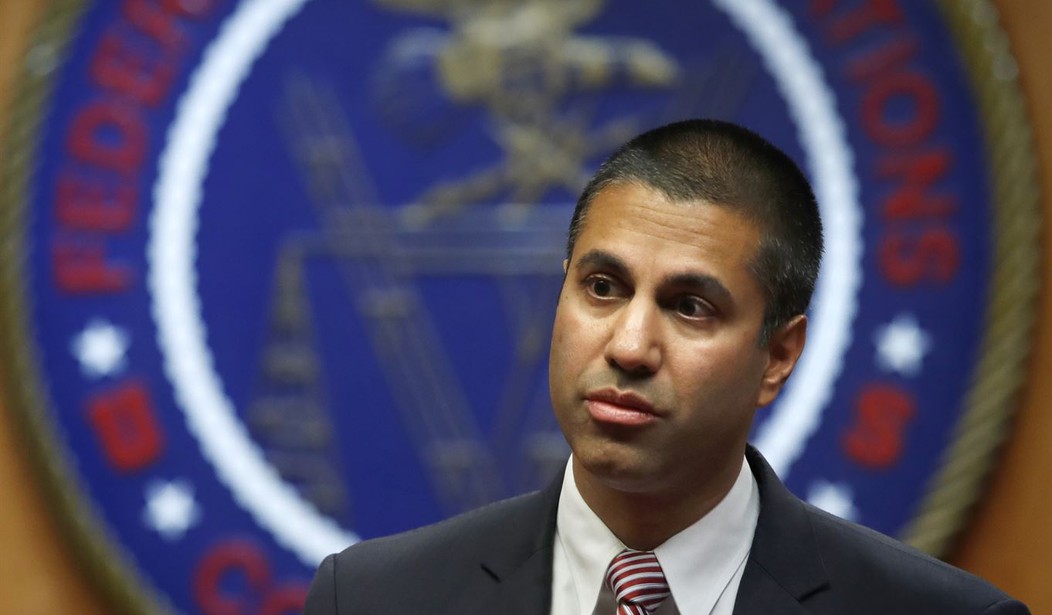A new Wall Street Journal expose finding that "Google has increasingly re-engineered and interfered with search results to a far greater degree than the company and its executives have acknowledged" is sure to bolster efforts from the company's opponents to break it up or cripple it with regulations.
There is a through-the-looking-glass quality to the debate for those of us who have spent the last 15 years or so in the Net Neutrality wars.
The same players - including Big Tech companies themselves and their surrogates - who have told us for years that only heavy-handed government neutrality regulations can save us from ISPs manipulating traffic and acting as gatekeepers are now recoiling in horror at the prospect of a neutrality regulation for Big Tech companies that are engaging in precisely such manipulation.
At the same time, many of the people who most strongly opposed Obama's mangled form of net neutrality are now insistent that we repeat the same big government mistakes to address the behavior of Big Tech.
Senator Ted Cruz brought Section 230 - the provision of U.S. law that provides intermediary liability protection to the tech companies - into the scope of the debate by suggesting that limiting such a government-granted benefit could provide a mechanism for conservatives ideologically suspect of regulation to address the perceived thumb these companies had on the scale for Democratic candidates and their liberal allies.
Senator Josh Hawley pushed this idea to an extreme almost shocking from a Republican - a bill requiring certification of political neutrality by federal bureaucrats to retain 230 protection.
Recommended
Cruz and Hawley understand something too many professional analysts on the right ignore at their peril - the conservative base is nearing a boiling point in its hatred of Big Tech and sees this as a central front in the culture war, not a venue for economic policy subject to ideological constraints.
How, in this context, can we chart a path forward that can satisfy this base anger without betraying free-market principles?
The answer could lie in FCC Chairman Aji Pai's brilliant resolution of the net neutrality issue. Not only have none of the predicted negative consequences occurred since Pai's more free-market version of net neutrality was enacted, but to the contrary data speeds have risen sharply, investment is up, and there have been no notable episodes of discrimination by ISPs.
The heart of the Pai order is a transparency rule, which replaces heavy-handed regulation with market discipline - in effect, if you want to treat traffic in a non-neutral fashion you can, but you have to explain what you're doing to your customers.
Ironically, the Big Tech companies continue to pursue reimposition of the heavy-handed Obama neutrality regulations on ISPs even as they fend off efforts to similarly regulate themselves or limit their liability protections.
But the success of the Pai order suggests a much more elegant solution: Big Tech should be subject to a transparency rule and, if they do in fact discriminate against certain content, they should explain how to their customers.
Such a rule could require clear disclosure of how traffic is treated, and clear specification of the standards used for limiting speech, including any possible viewpoint discrimination. Platforms that represent themselves to the public as neutral could be subject to civil complaints if they violate those representations.
A transparency rule would avoid the perils of more heavy-handed government regulation, dissipate the distrust toward Big Tech from the left and right, and harmonize the rules for ISPs with the rules for the edge giants they are increasingly competing with in the advertising market.
Crafting a transparency rule for Big Tech is easier said than done, of course. But just as with regulation of ISPs, it could be the least-bad option.

























Join the conversation as a VIP Member